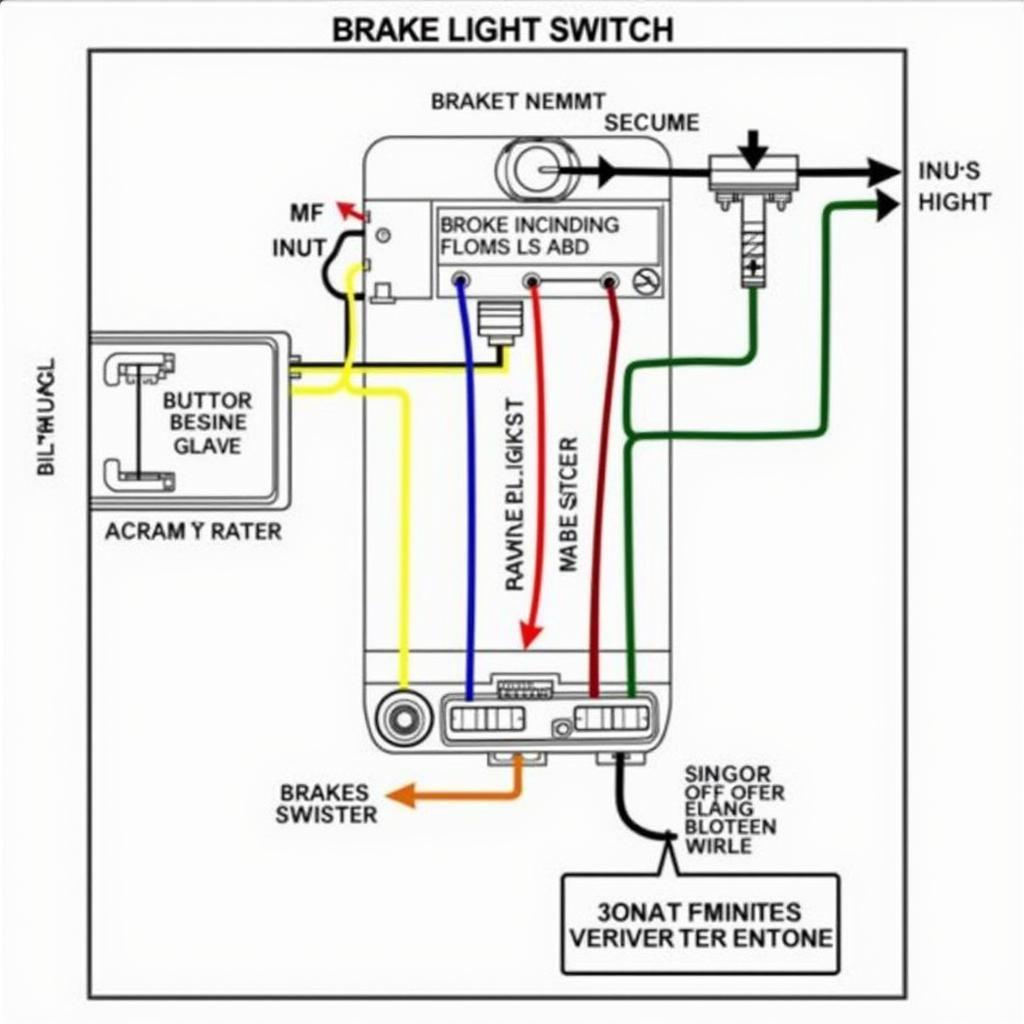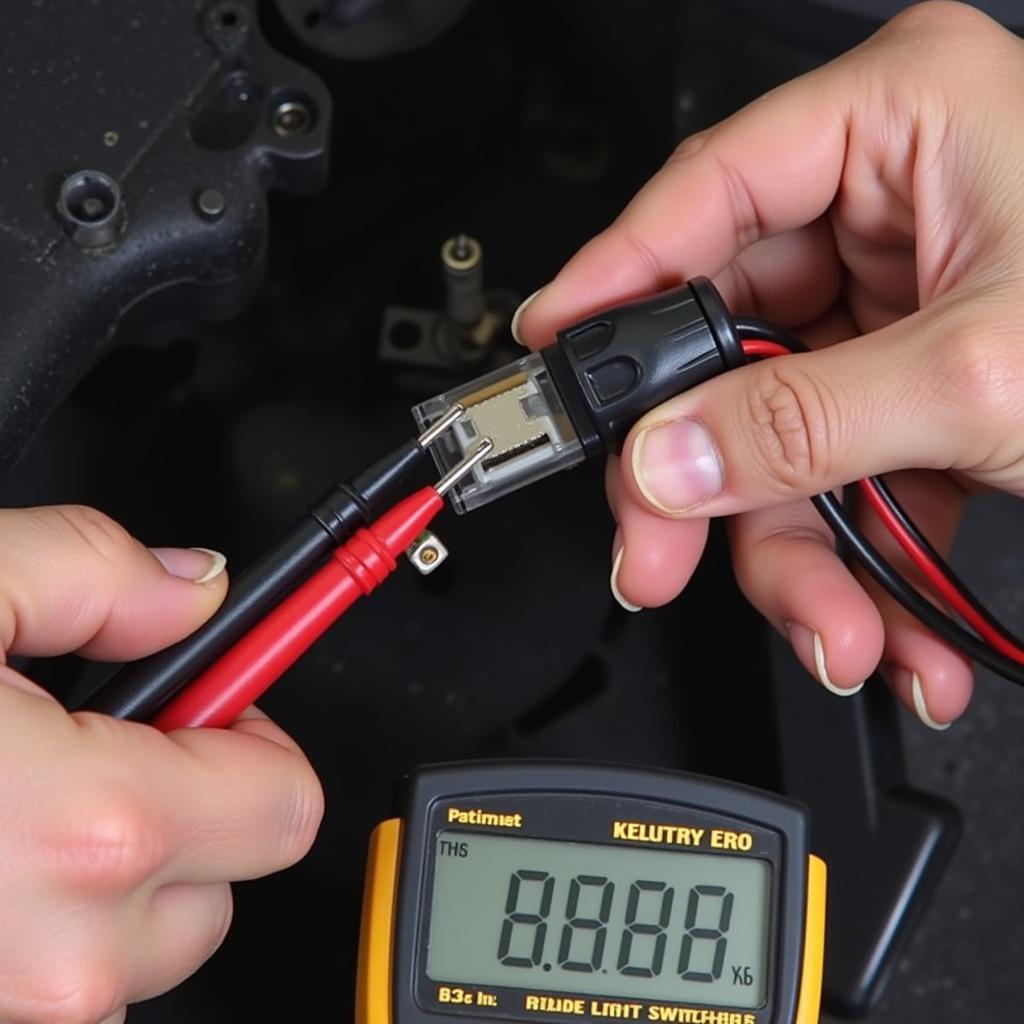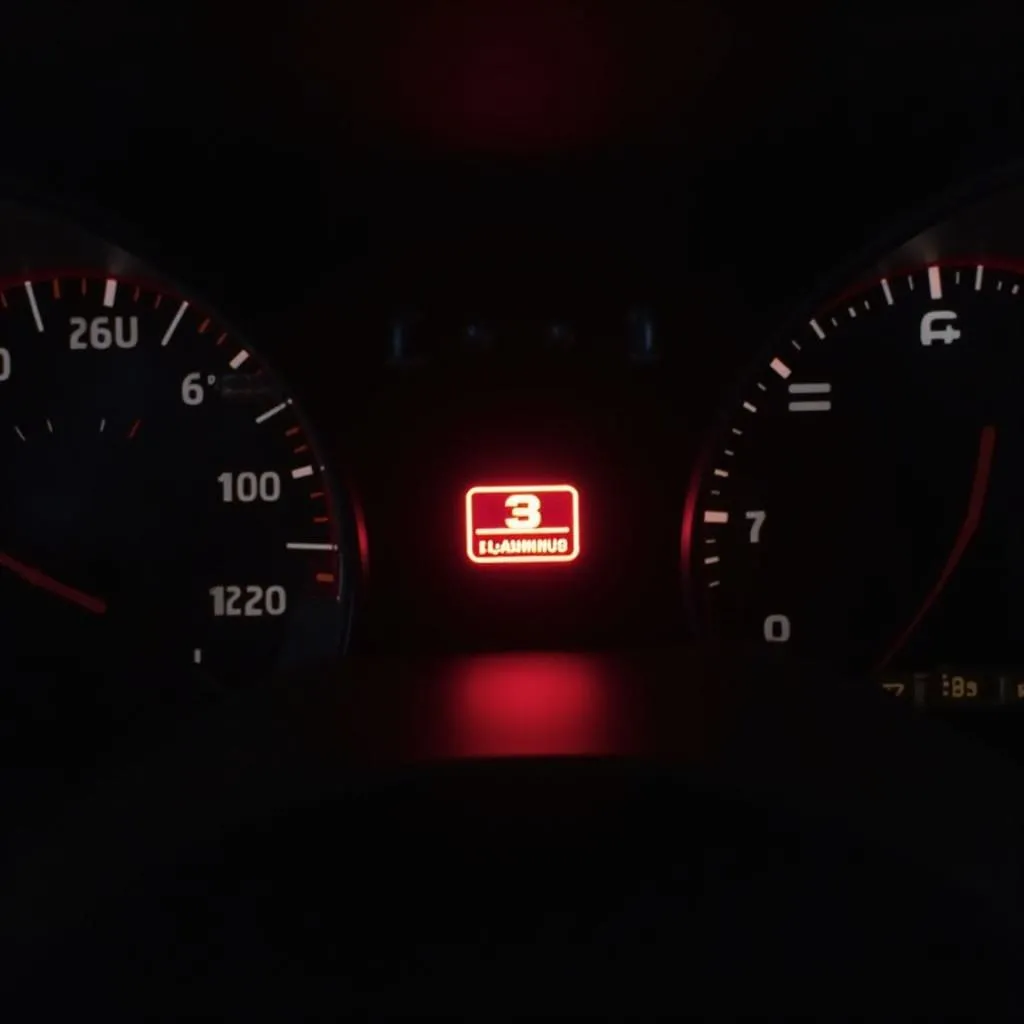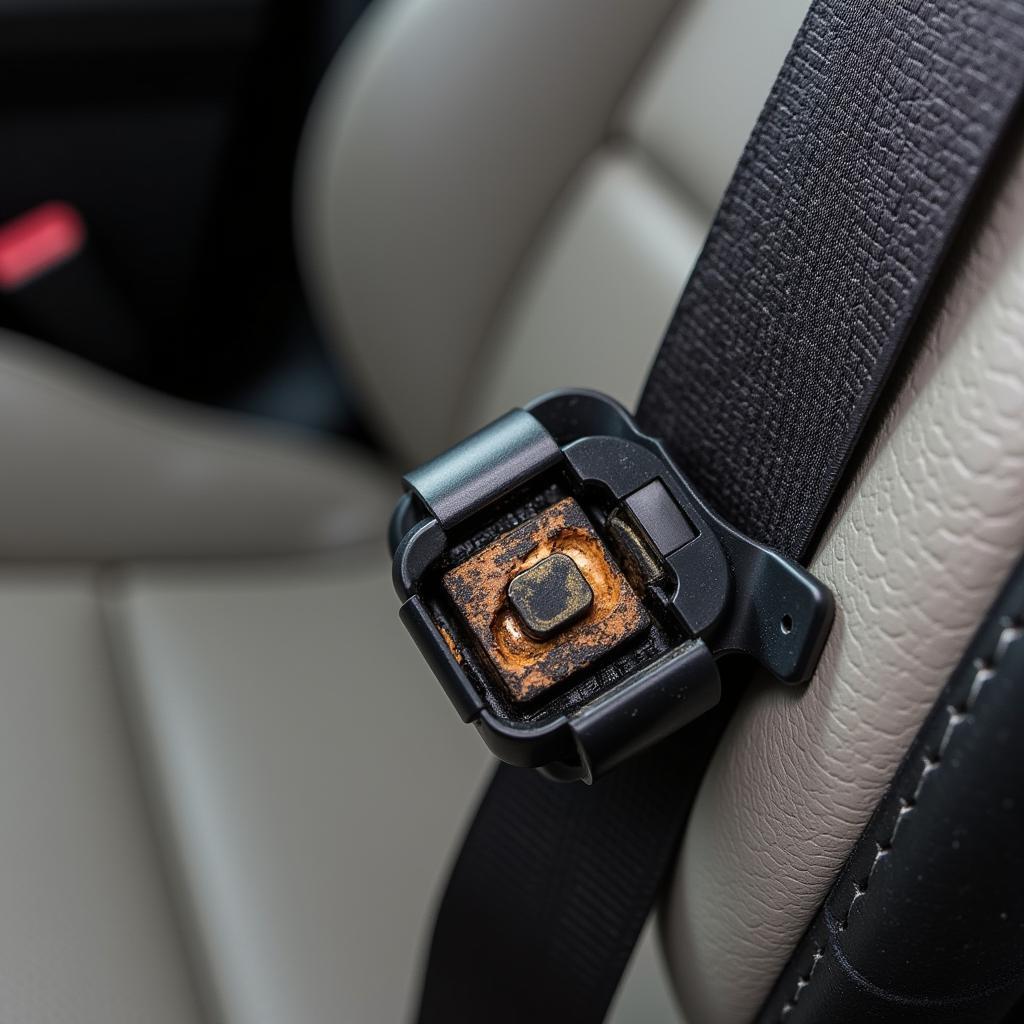A brake warning light that goes off when you apply the brakes can be a confusing and potentially dangerous situation. While a brake warning light illuminating is common and often indicates low brake fluid, a light that deactivates upon braking requires a different diagnostic approach. This article delves into the possible causes, diagnostic steps, and solutions for this unusual brake light behavior.
As a specialist in automotive electrical engineering, with expertise in remote diagnostics, programming, and software installation for vehicle repairs, I often encounter this issue. A typical scenario is a driver noticing the brake warning light on while driving, only to see it extinguish when the brake pedal is pressed. This can lead to a false sense of security, as the underlying problem might not be resolved. Let’s explore this further.
Understanding Your Brake Warning Light System
The brake warning light is a critical component of your vehicle’s safety system. It’s designed to alert you to potential problems within the braking system, such as low brake fluid, a malfunctioning ABS system, or issues with the parking brake. However, the behavior of the light going off when the brakes are applied suggests a different type of issue, often related to electrical faults or sensor problems.
If you’re experiencing this issue with a 2010 Subaru Outback, you can find more specific information at 2010 subaru outback brake warning light.
Possible Causes of the “Brake Warning Light Goes Off When Brakes Applied” Issue
Several factors can cause this unusual behavior:
- Faulty Brake Light Switch: The brake light switch, located under the brake pedal, is responsible for activating the brake lights and signaling the brake warning light system. A malfunctioning switch can cause erratic behavior, including turning off the warning light when the brakes are applied.
- Wiring Problems: Damaged or corroded wiring in the brake light circuit can create intermittent connections, leading to the observed symptoms. This often requires careful inspection and repair.
- Grounding Issues: A poor ground connection in the brake light circuit can also cause the warning light to behave unpredictably.
- ABS Sensor Problems: While less common in this scenario, a failing ABS sensor could contribute to unusual brake warning light behavior. This is more likely if you also experience other ABS-related issues.
 Brake Light Switch Diagram and Wiring
Brake Light Switch Diagram and Wiring
Diagnosing the Problem
Diagnosing this issue requires a systematic approach:
- Check Brake Fluid Level: Although the symptom doesn’t directly suggest low brake fluid, it’s always the first step. Ensure the fluid level is within the recommended range.
- Inspect the Brake Light Switch: Test the switch for proper operation using a multimeter. Look for signs of damage or wear.
- Examine Wiring and Connections: Carefully inspect the wiring harness for any signs of damage, corrosion, or loose connections.
- Check Ground Connections: Verify the ground connection for the brake light circuit is clean and secure.
 Testing Brake Light Switch with Multimeter
Testing Brake Light Switch with Multimeter
For issues specifically related to the Chevrolet Uplander’s brake fluid warning, refer to chevrolet uplander brake fluid level warning indicator.
Solutions and Repairs
Once the cause is identified, the repair will depend on the specific problem:
- Replace the Brake Light Switch: A faulty switch requires replacement. This is usually a simple and inexpensive fix.
- Repair Wiring: Damaged wiring needs to be repaired or replaced. This may require some electrical expertise.
- Clean or Repair Ground Connections: Ensure a clean and secure ground connection.
- Address ABS Sensor Issues: If an ABS sensor is faulty, it will need to be replaced. This often requires diagnostic tools to pinpoint the problematic sensor.
Why a Professional Diagnosis is Recommended
While some of these checks can be done by DIY enthusiasts, a professional diagnosis is highly recommended. A qualified technician with access to specialized diagnostic tools can accurately pinpoint the issue and perform the necessary repairs safely and efficiently. They can also address more complex issues like ABS problems, ensuring the entire braking system is functioning correctly.
If you’re concerned about parking brake warnings, you might find helpful information at warning when parked apply parking brake. For Jeep JK owners facing ESP/ABS warning lights, consider checking jeep jk esp abs warning light.
Conclusion
A brake warning light that goes off when brakes applied is a sign that something isn’t right. Don’t ignore this symptom. Address the issue promptly to ensure your safety and prevent further damage to the braking system. A thorough diagnosis and proper repair are essential for restoring the reliability and safety of your vehicle’s braking system.
FAQ
- Is it safe to drive with the brake warning light behaving this way? No, it’s not recommended. This unusual behavior indicates a potential problem with the braking system.
- Could a low battery cause this issue? While a very low battery can cause unusual electrical behavior, it’s unlikely to be the direct cause of this specific brake light issue.
- How much does it cost to replace a brake light switch? The cost varies depending on the vehicle, but it’s generally an inexpensive part. Labor costs will be the more significant factor.
- Can I replace the brake light switch myself? It’s a relatively simple DIY task for some vehicles, but it’s important to be comfortable working with basic electrical components.
- What happens if I ignore this problem? Ignoring the problem could lead to further damage to the braking system, potentially resulting in a more expensive repair or a dangerous driving situation.
- Why does my brake warning light flicker sometimes? Flickering could indicate a loose connection, a failing switch, or a problem with the wiring.
- How often should I check my brake fluid? It’s recommended to check your brake fluid level at least every few months, or as part of your regular vehicle maintenance.


